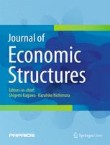Journal of Economic Structures Special Issue on: Multiregional input-output analysis for global resource policy
The global consumption of natural resources has increased rapidly in the last few decades due to an increase in world population and significant economic growth of transition counties such as Brazil, Russia, India, China or South Africa. This trend is likely to continue for some time, further accelerating the depletion of fossil, metal and mineral resources and even threating the sustainability of biomass renewal. At the same time, the globalization of product supply chains has segmented the production processes of goods and services and increased international specialization of production. This implies the necessity of global resource policy to enhance and ensure the sustainability of resource use at a global level, in addition to sustainable resource management in each country. As is the case with global climate policy such multilateral initiatives need a sound underpinning of scientific facts, databases and models. Multiregional input-output (MRIO) analysis is one of the most powerful tools to analyse the relationship between resource extraction, global supply chains and consumption. MRIO analysis has been shown to quantitatively support the discussion on producers' and consumers' responsibilities for greenhouse gas emissions and the same can be expected for resource management.
This Special Issue of Journal of Economic Structures aims to summarize the recent progress of MRIO analysis focusing on natural resources and to understand its potential for the design of global resource policies. We are inviting papers on the analysis of natural resource use with MRIO models and welcome any analysis on specific resources or specific countries. Manuscripts should be submitted to the guest editors listed below. Authors are able to name up to five preferred referees in their cover letter. The final version must be submitted and prepared according to the instructions of the journal. Papers will be carefully refereed to meet the standards of publication of the journal. We will make every effort to provide a notification of acceptance or rejection within two months of submission. Please contact the guest editors with any question regarding the suitability of topics for this Special Issue.
Your article will be published free of charge!
Due to a generous grant by the Japan Society for the Promotion of Science (JSPS), we will waive article processing charges (APCs) for all accepted articles for this Special Issue.
Important dates:
Submission deadline for abstracts: May 31, 2017
Submission deadline for full manuscripts: September 30, 2017
Deadline for receipt of revised, final manuscripts: December 31, 2017
Publication: 1st quarter of 2018
Guest Editors:
Keisuke Nansai, Senior Researcher, Center for Material Cycles and Waste Management Research, National Institute for Environmental Studies, Japan, Email: nansai.keisuke@nies.go.jp
Thomas Wiedmann, Associate Professor, School of Civil and Environmental Engineering, UNSW Australia, Sydney, Australia, Email: t.wiedmann@unsw.edu.au
